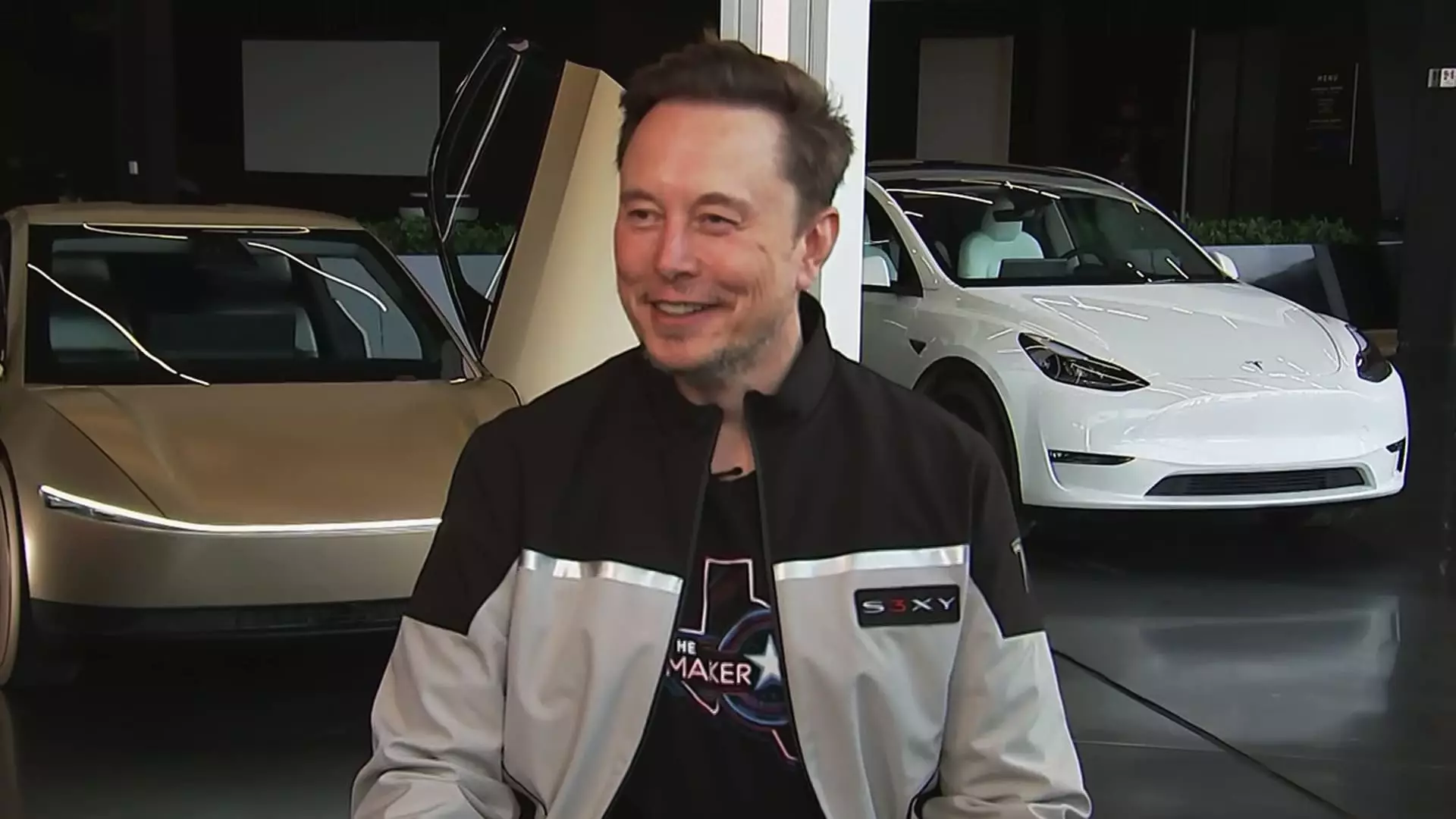In May, Tesla’s stock demonstrated a surprising resurgence, climbing over 20%. This rally is particularly noteworthy given the stark backdrop of disappointing car sales in significant markets like China and Europe. The notion that a company can rebound in stock value despite a clear decline in product demand raises eyebrows. Is this surge a testament to Elon Musk’s charismatic leadership, or just another instance of speculative excitement surrounding him?
Investors and analysts frequently remark on Tesla’s capacity to generate buzz, and May was no exception. Regardless of dwindling sales figures—down 50% in Europe year-over-year and roughly 25% in China—investors appear undeterred. Musk’s recent assertion of refocusing on core business activities over political engagements may have provided the necessary reassurance. However, this raises the critical question: should stock price be the sole indicator of a company’s health? One must wonder if the market is mistakenly equating Musk’s personal charisma with Tesla’s financial realities—a phenomenon that can only last so long before the bubble bursts.
The Shadow of Politics: Musk’s Dual Life
Elon Musk concurrently wears many hats—CEO, entrepreneur, and now, increasingly, a political figure. His tenure as a “special government employee” during Trump’s administration exemplifies this duality, and it is hard to ignore the tensions arising from his political alliances. A recent New York Times report cast a shadow over Musk, hinting at personal challenges during his role in the White House, marked by substance use and family tumult. Such revelations are particularly concerning given that they were happening at a time when he sought to steer massive enterprises like Tesla and SpaceX.
The polarization surrounding Musk is evident. While he remains a figure of fascination, his political connections—even lending support to extreme factions—alienate many potential customers and investors. This is furthered by protests against Tesla’s corporate policies, leading pension fund leaders to demand that its board rein in Musk’s influence. The challenge for Tesla isn’t just about innovating; it must navigate the murky waters of public perception and responsibility in business. Musk is undoubtedly a visionary, yet one must ponder whether his penchant for controversy may ultimately undermine the very business he built.
Market Adaptability: Can Tesla Turn the Tide?
Despite recent troubles, Tesla is reportedly eyeing its future with ambitions in autonomous vehicle technology, humanoid robotics, and artificial intelligence. Much attention gravitates towards the anticipated launch of their autonomous ride-hailing service in Austin, Texas. Although the robotics market is rapidly evolving—with competitors like Waymo making significant inroads—Tesla seems to be banking heavily on its self-driving platform.
The hope is that the introduction of a robotaxi service will reinvigorate consumer interest and silence the critics questioning Tesla’s innovation pipeline. But ramping up production and meeting investor expectations is not a minor feat. Perhaps more urgently, Tesla must address the sales crisis in key markets. Musk has consistently promised a future filled with breakthrough technologies, yet as competitors advance, could Tesla’s delays put it at a significant disadvantage?
Global Challenges for Tesla: A Bumpy Road Ahead
In navigating its global interests, Tesla faces mounting challenges—not merely from competitors but from macroeconomic conditions and supply chain complexities. Despite its vast manufacturing capabilities in California and Texas, there’s a limit to how much domestic production can buffer Tesla against tariffs and geopolitical tensions. Company leaders are now pondering if a more diversified approach in foreign markets might offer a necessary lifeline.
Tesla’s reliance on North American-made parts offers a competitive edge, yet with the company’s performances flagging in Europe and Asia, it prompts serious introspection regarding its global strategy. Are Musk’s ambitions and dreams too ambitious for the current climate? The automotive industry is already seeing shifts; with Beijing enforcing new regulations and taxes, Tesla must adapt rapidly or risk falling into the abyss of obsolescence.
Through brilliant marketing and an adventurous brand personality, Tesla may still claim a significant market percentage. However, as reality checks come in the form of declining sales and political backlash, one can only hope that Musk’s genius translates into a robust strategic pivot rather than mere bravado. The unpredictability surrounding Tesla raises questions about its future and whether the company’s rise is indeed sustainable or simply a temporary tide in a turbulent sea.

